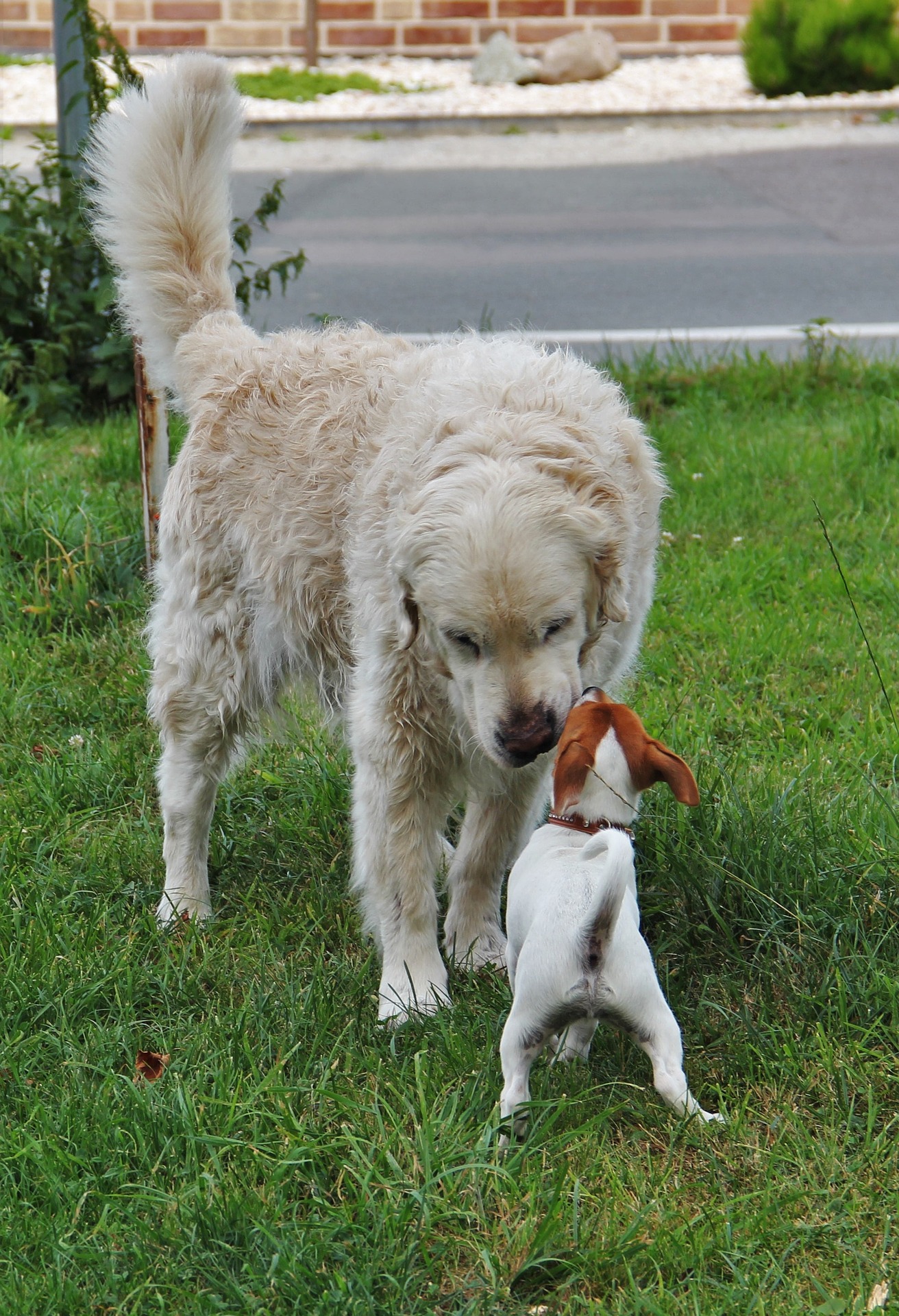Many people who love their dog often can’t wait to bring a furry new addition into the family. But while the humans may be excited to welcome the yelping, playful bundle of energy into the home, it is important to note that your older dog may not share your enthusiasm for bringing a second dog into the home.
From territorial behaviors to sheer exhaustion, your older dog may find himself resenting the new puppy, but it doesn’t have to be this way.
If you are bringing home a new puppy, here are some great tips to make the transition easier for everyone involved.
Preparing for the New Puppy
- If you have the opportunity ahead of bringing your new puppy home, obtain a blanket or swatch of material which the puppy has slept on. Allow your older dog to sniff and get used to the smell of the new addition before he meets her.
- Buy a separate crate and a separate food dish for the new puppy. Not only will this help to make the older dog feel less territorial, but the crate will allow for some much-needed respite on occasion.
- Plan the first meeting in a neutral location, so that your older dog won’t be meeting the new little one on “their “territory. You can try a dog park or a friend’s yard. Have both dogs leashed, but leave slack enough to allow for exploration while keeping stress levels lower.
- Have your puppy’s crate set up in the home, and place the new puppy in the crate right away. This will encourage the older dog (by not kenneling them and allowing the puppy to run free) and will also allow him to walk away from the energetic pup if need be.
Encouraging Interaction with Your New Puppy
- Always supervise interactions until you are sure that both animals are comfortable with the relationship.
Your older dog may snarl or growl, but this is perfectly natural to teach the puppy boundaries. Your new puppy needs to learn not to steal a toy, or not to bite his new friend’s ears. A growl is likely an unexpected warning to a puppy accustomed only to sibling yelps and mom’s love, so being growled at is an important step in learning. It is only necessary to intervene if the older dog snaps or tries to bite, which is generally fairly rare. - As noted, puppies have no boundaries and a non-existent sense of the “rules.” Older dogs, on the other hand, instinctually follow the rules and generally follow a fairly ordered existence. Your older dog may show patience for a short period of time (as the new puppy crawls all over him) but may tire of the game quickly. Keep an eye on the older dog and be aware of his body language. Remove the puppy to his crate or another area should the older dog be losing patience.
- Every dog’s temperament is different, so know yours. Reward your dog with a treat (or a click) if they are patient or stop growling when asked. Stay vigilant to know when the dog has had enough, and be as encouraging and loving as possible as they learn to share their territory.
Overall, bringing a new puppy home is much like bringing a new baby home – it goes more smoothly if the older sibling has been gently prepared, still has time to themselves and with “mom and dad”, and do not feel as if they are losing their position in the family.
If you have any further questions as to how to prepare your older dog or to train the new puppy, Gulf Coast K9 Dog Training is here to help. It is our goal to make all stages of your dog’s life happy and healthy – contact us today!





